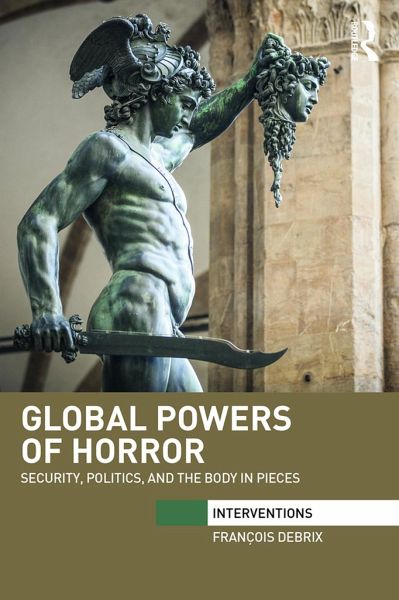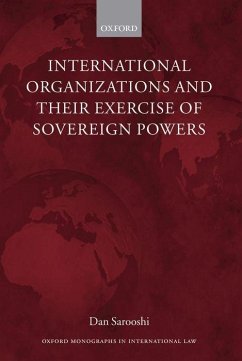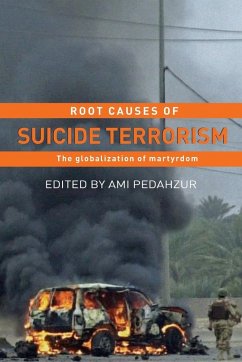
Global Powers of Horror
Security, Politics, and the Body in Pieces
Versandkostenfrei!
Versandfertig in 6-10 Tagen
45,99 €
inkl. MwSt.
Weitere Ausgaben:

PAYBACK Punkte
23 °P sammeln!
Global Powers of Horror examines contemporary regimes of horror, into horror's intricacies, and into their deployment on and through human bodies and body parts. To track horror's work, what horror decomposes and, perhaps, recomposes, Debrix goes beyond the idea of the integrality and integrity of the human body and it brings the focus on parts, pieces, or fragments of bodies and lives. Looking at horror's production of bodily fragments, both against and beyond humanity, the book is also about horror's own attempt at re-forming or re-creating matter, from the perspective of post-human, non-hum...
Global Powers of Horror examines contemporary regimes of horror, into horror's intricacies, and into their deployment on and through human bodies and body parts. To track horror's work, what horror decomposes and, perhaps, recomposes, Debrix goes beyond the idea of the integrality and integrity of the human body and it brings the focus on parts, pieces, or fragments of bodies and lives. Looking at horror's production of bodily fragments, both against and beyond humanity, the book is also about horror's own attempt at re-forming or re-creating matter, from the perspective of post-human, non-human, and inhuman fragmentation.
Through several contemporary instances of dismantling of human bodies and pulverization of body parts, this book makes several interrelated theoretical contributions. It works with contemporary post-(geo)political figures of horror-faces of concentration camp dwellers, body parts of victims of terror attacks, the outcome of suicide bombings,graphic reports of beheadings, re-compositions of melted and mingled remnants of non-human and human matter after 9/11-to challenge regimes of terror and security that seek to forcefully and ideologically reaffirm a biopolitics and thanatopolitics of human life in order to anchor today's often devastating deployments of the metaphysics of substance.
Critically enabling one to see how security and terror form a (geo)political continuum of violent mobilization, utilization, and often destruction of human and non-human bodies and lives, this book will be of interest to graduates and scholars of bio politics, international relations and security studies.
Through several contemporary instances of dismantling of human bodies and pulverization of body parts, this book makes several interrelated theoretical contributions. It works with contemporary post-(geo)political figures of horror-faces of concentration camp dwellers, body parts of victims of terror attacks, the outcome of suicide bombings,graphic reports of beheadings, re-compositions of melted and mingled remnants of non-human and human matter after 9/11-to challenge regimes of terror and security that seek to forcefully and ideologically reaffirm a biopolitics and thanatopolitics of human life in order to anchor today's often devastating deployments of the metaphysics of substance.
Critically enabling one to see how security and terror form a (geo)political continuum of violent mobilization, utilization, and often destruction of human and non-human bodies and lives, this book will be of interest to graduates and scholars of bio politics, international relations and security studies.













